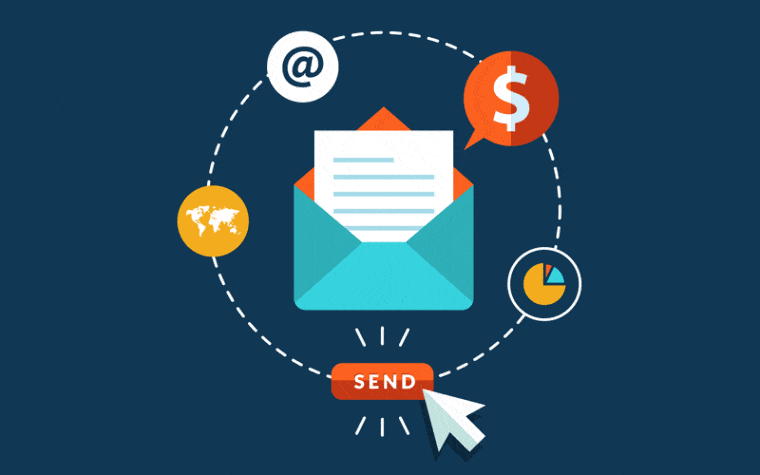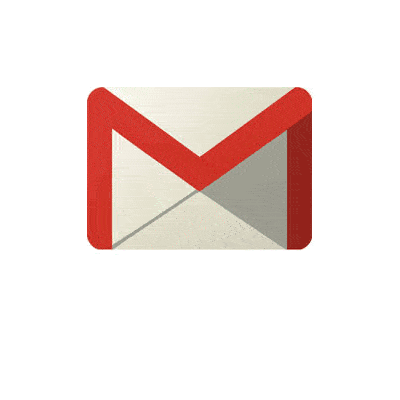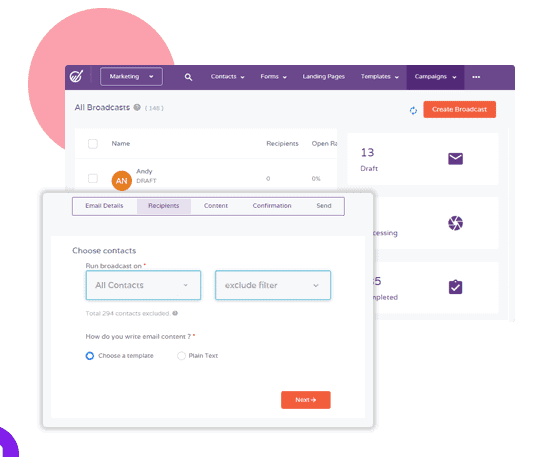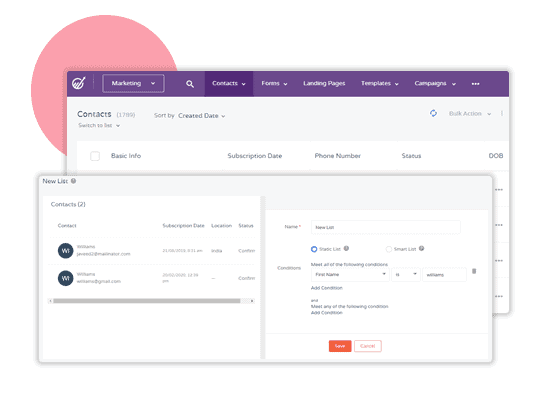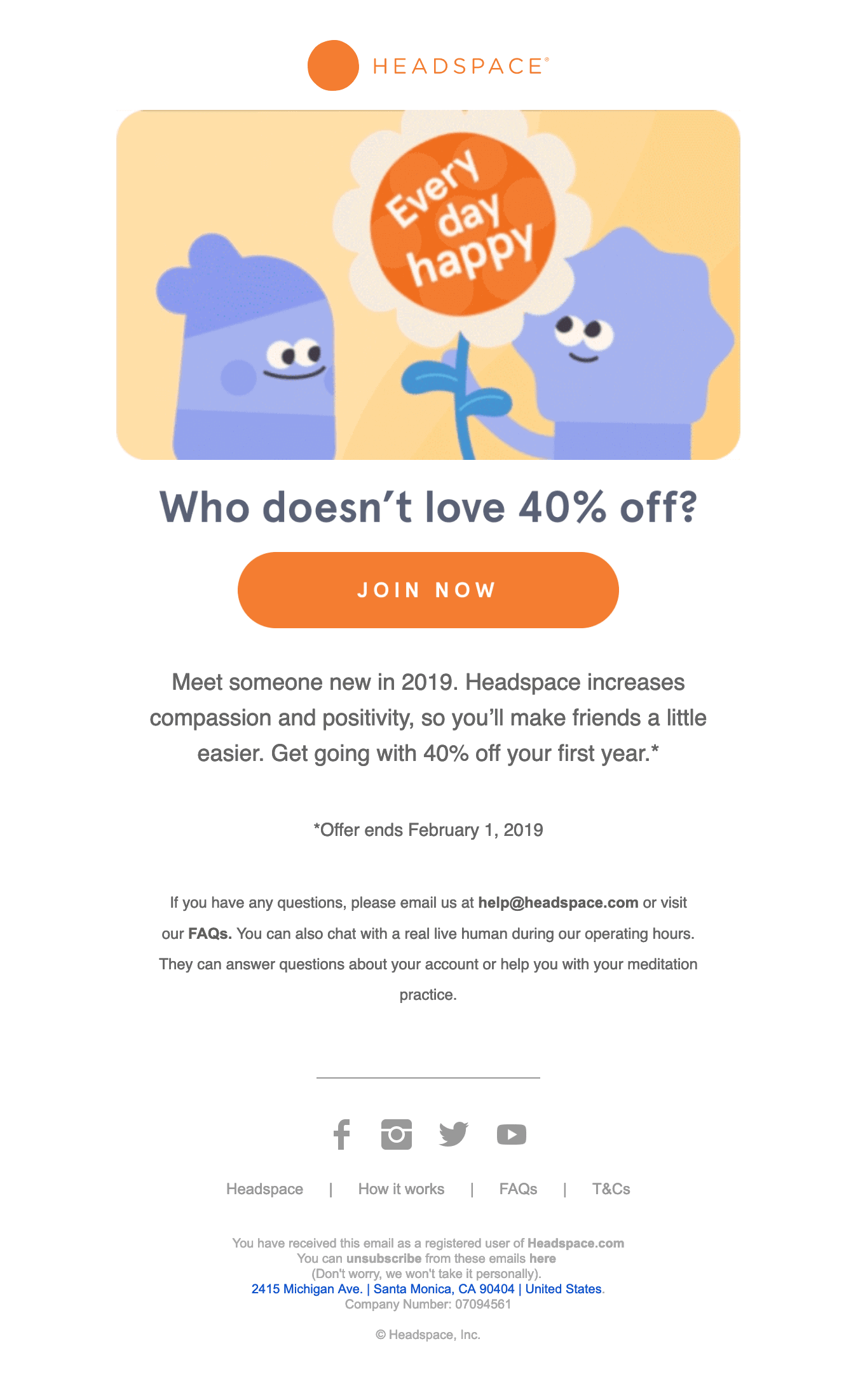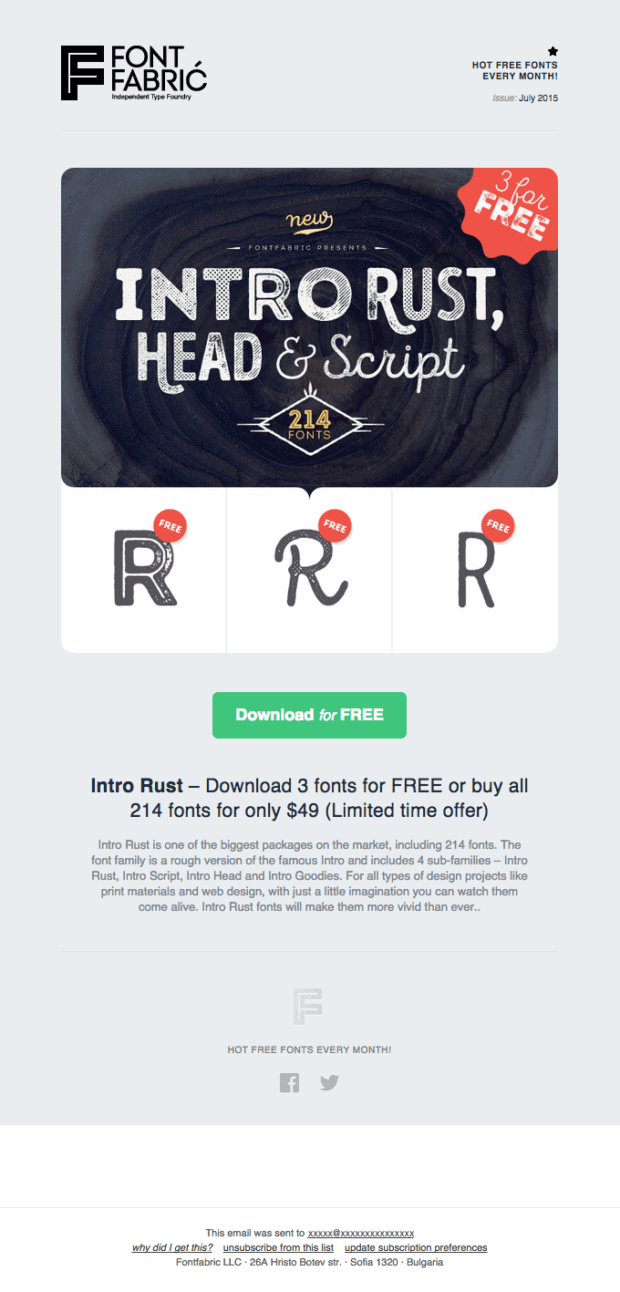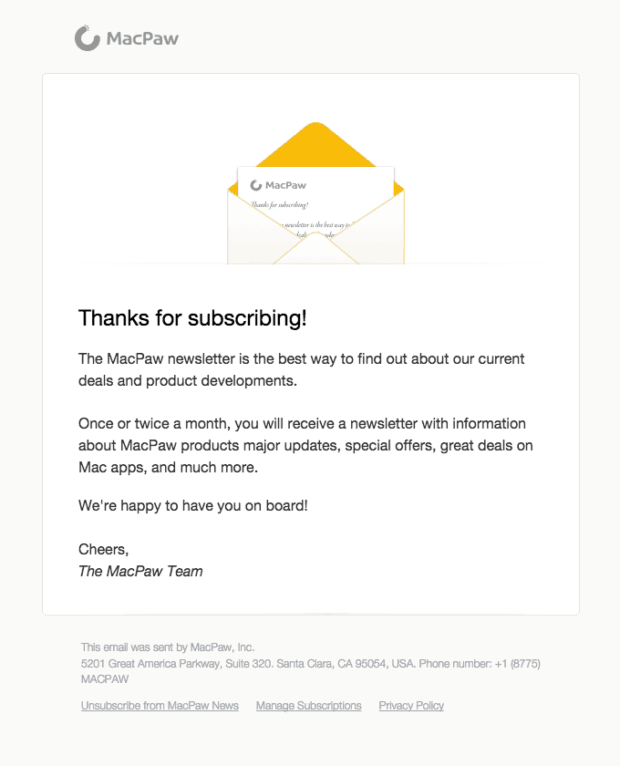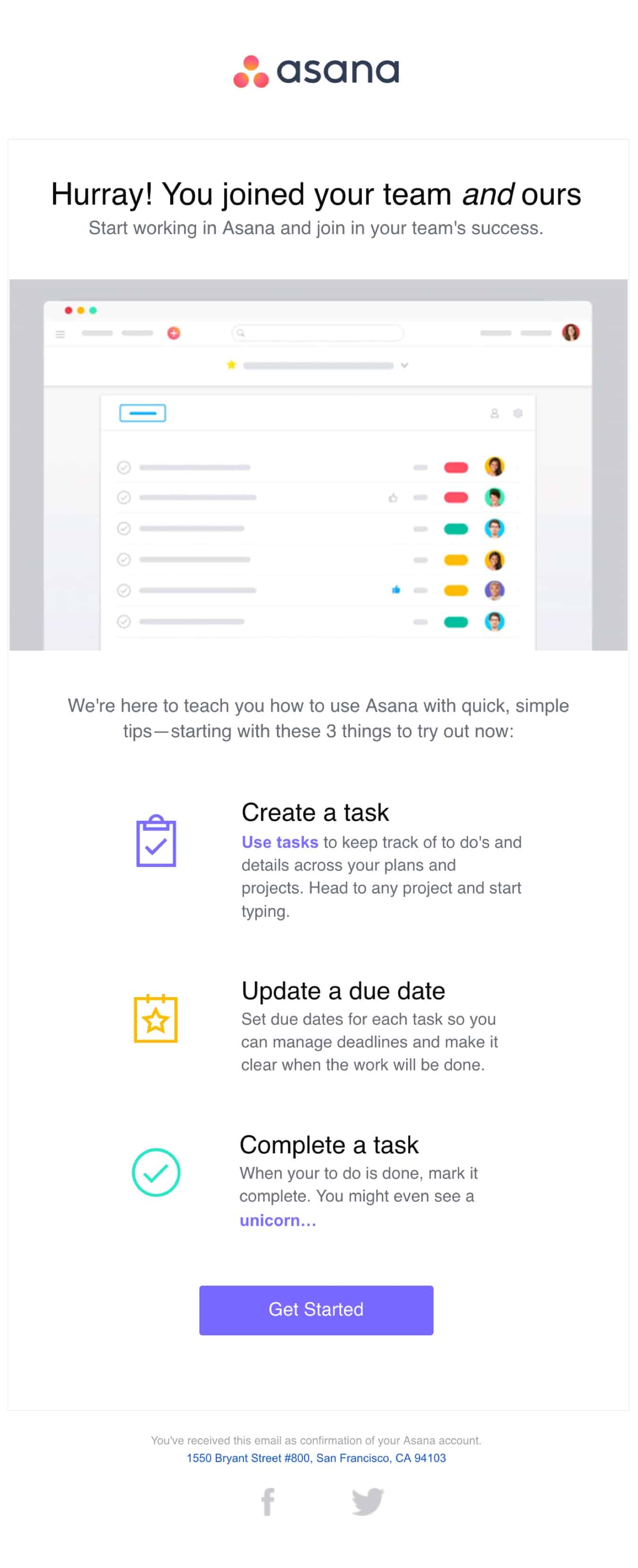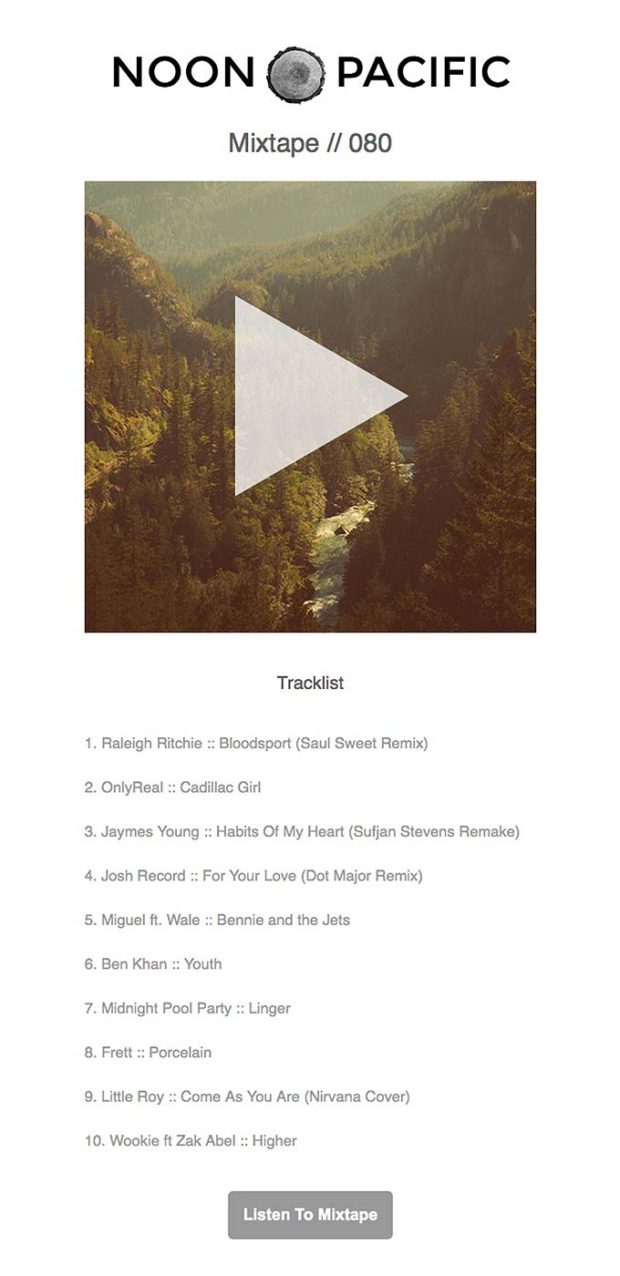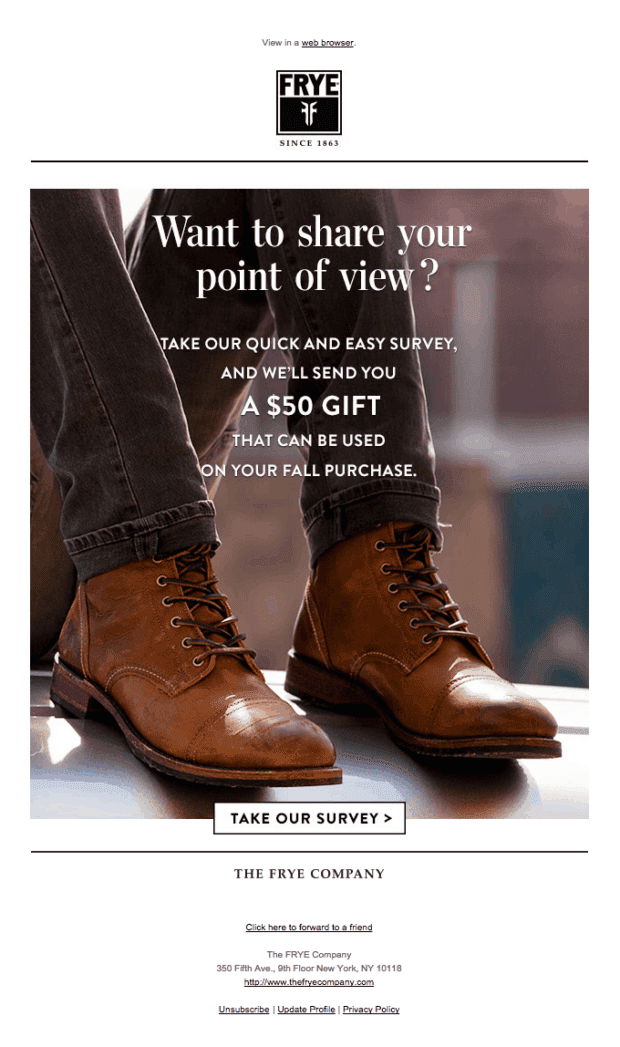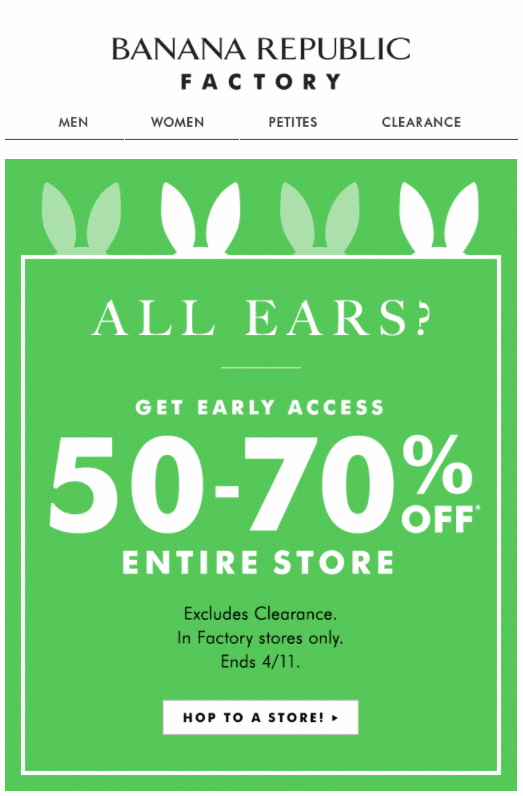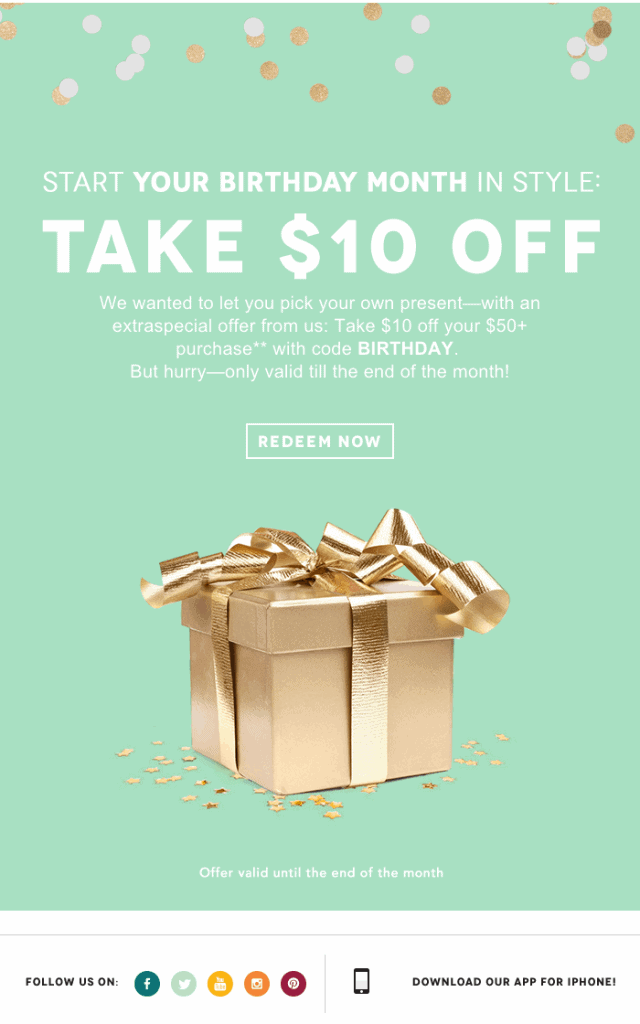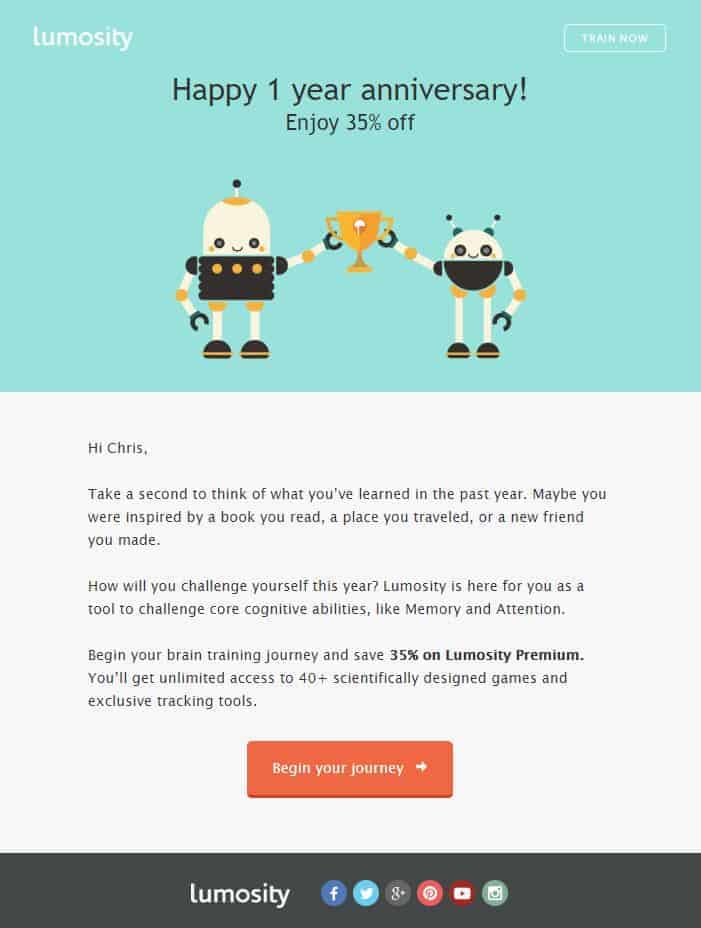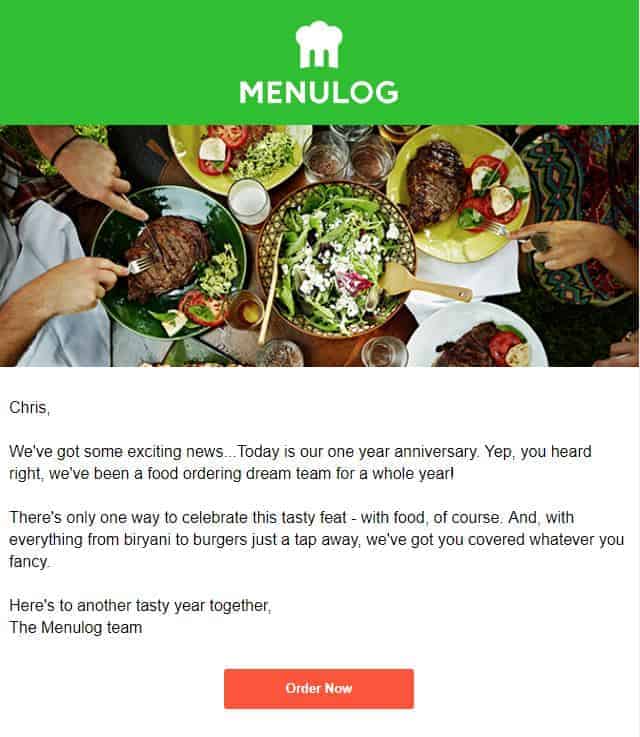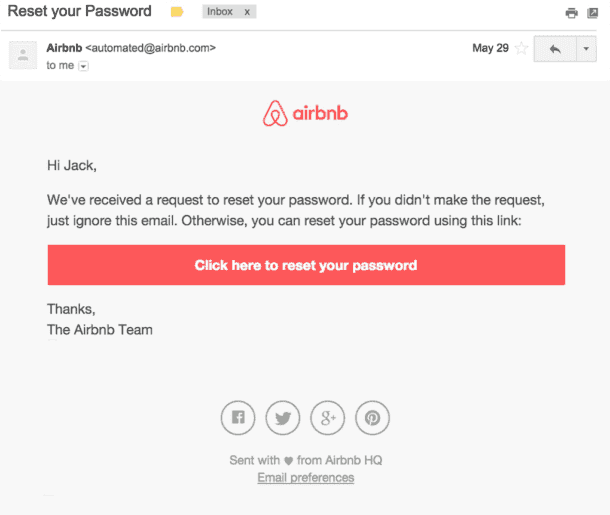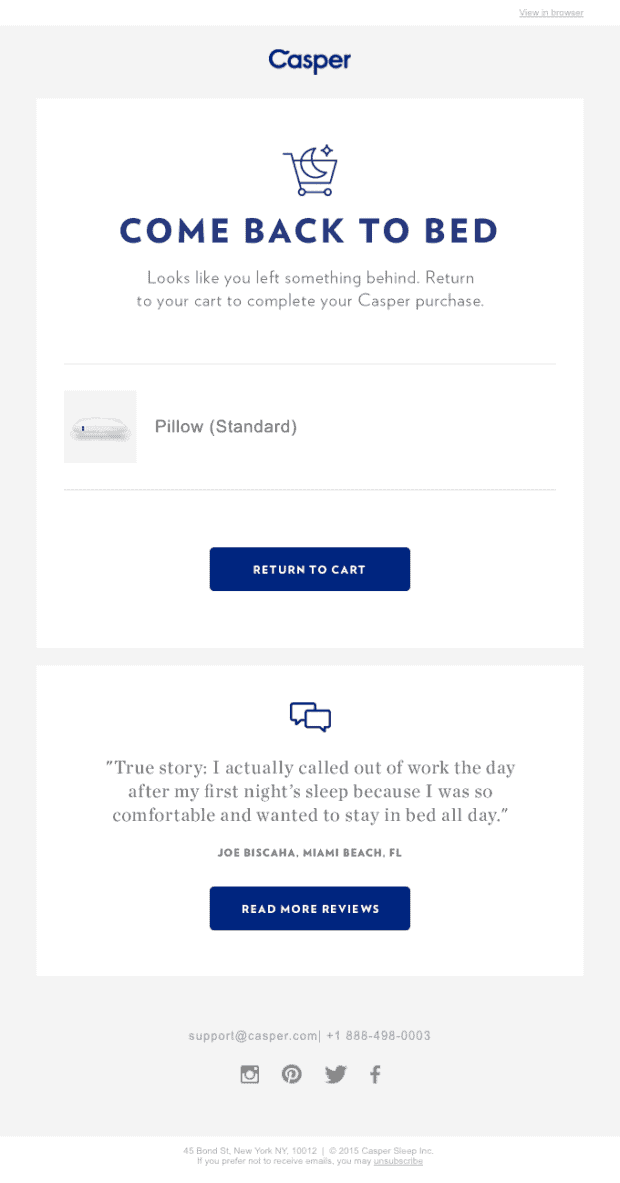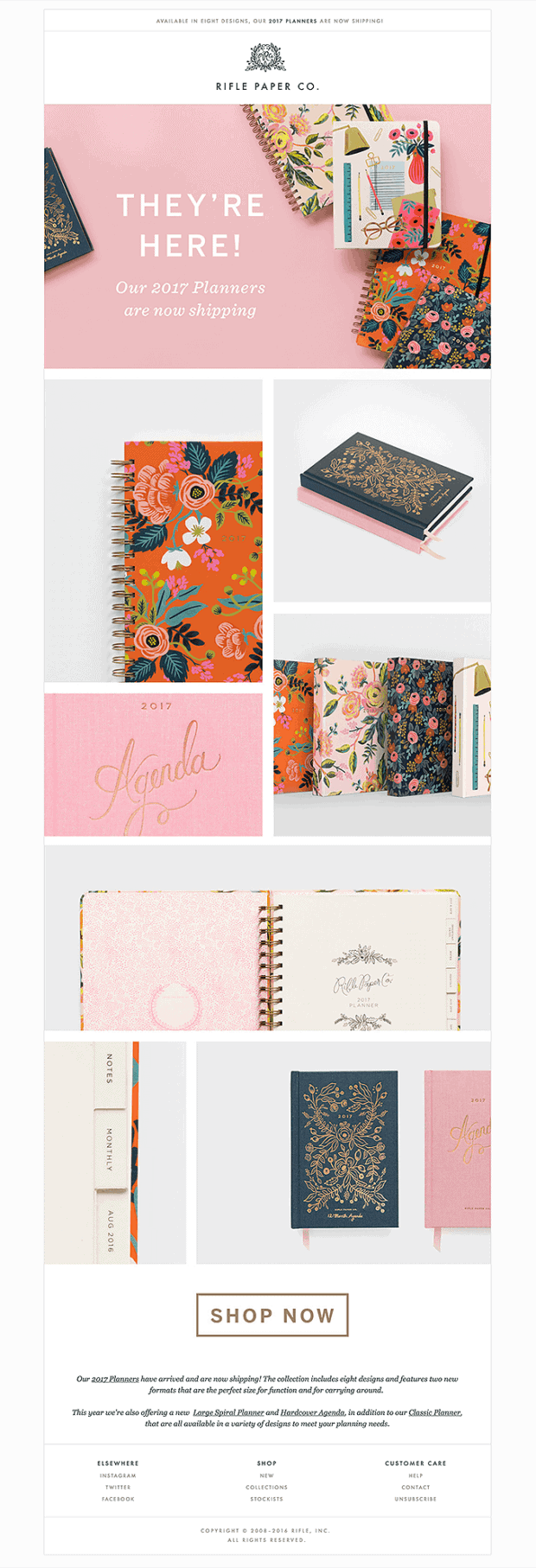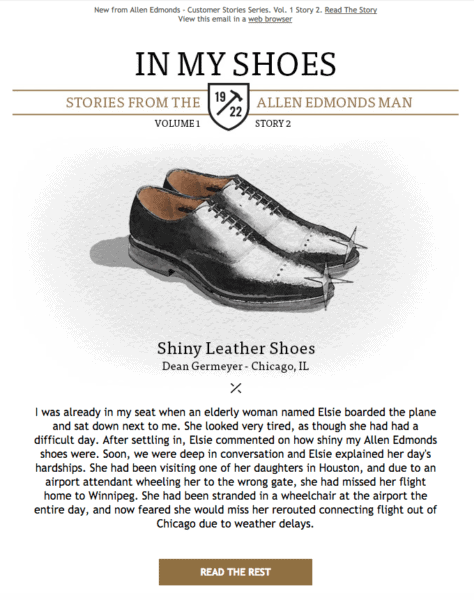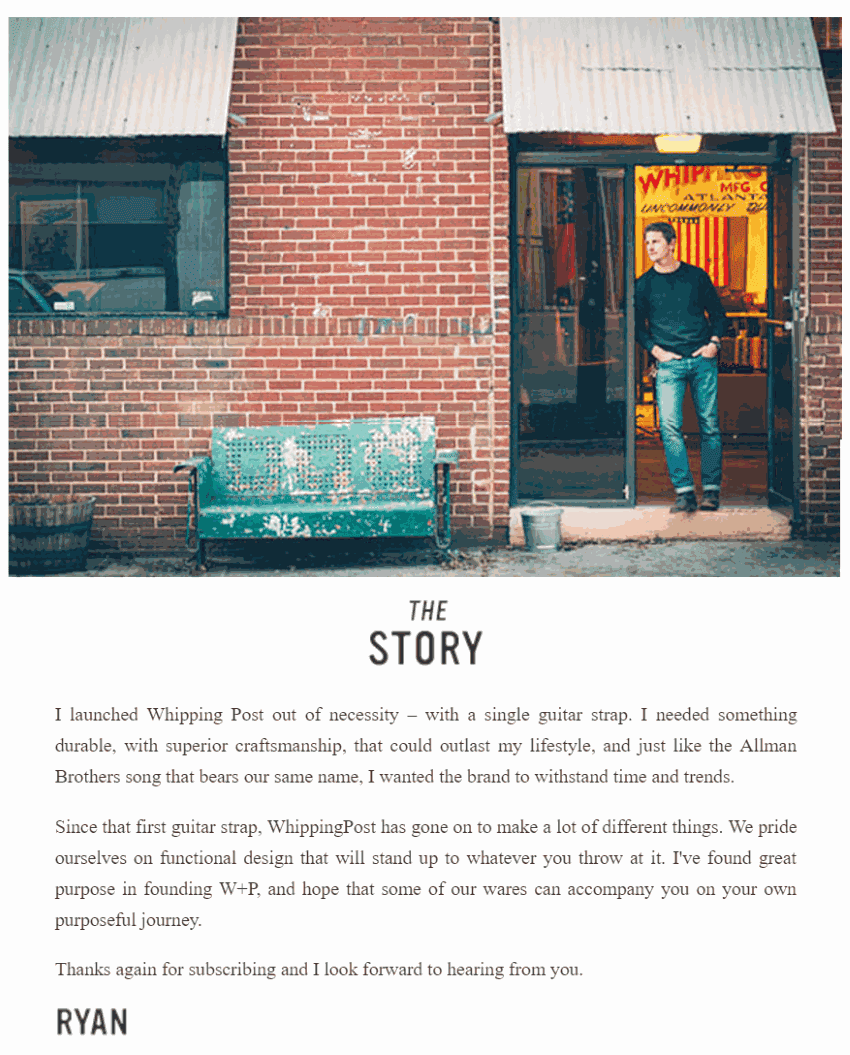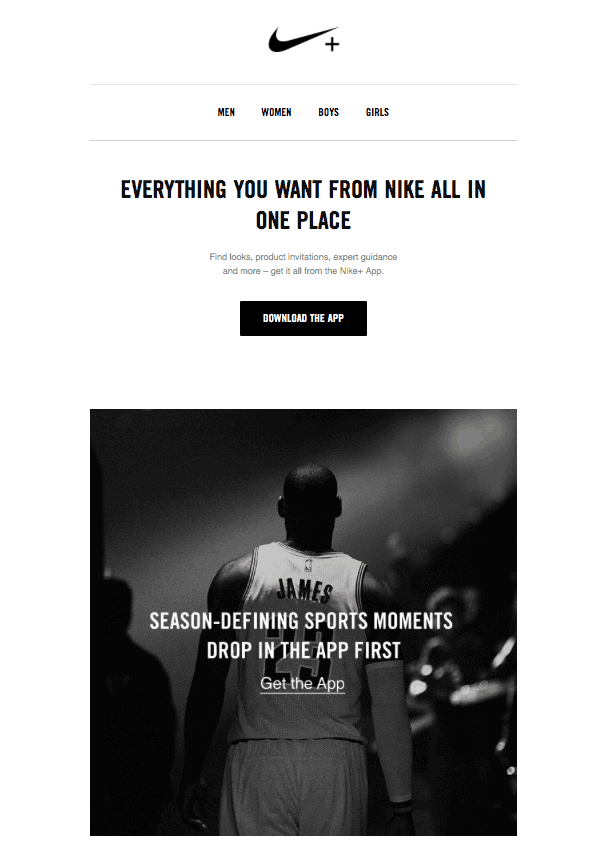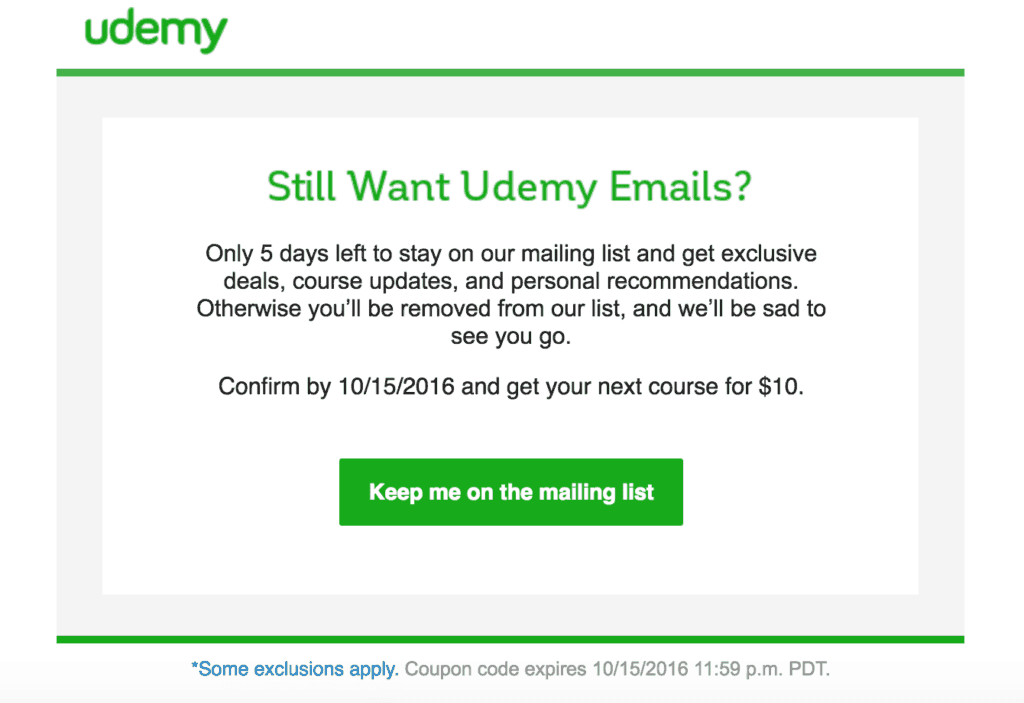You’re probably wondering why have different types of emails, or rather why email at all?
Email marketing is 40x more effective at customer acquisition than Facebook or Twitter. (McKinsey)
Email subscribers are 3x more likely to share content on social media than when presented from other sources. (QuickSprout)
When asked to opt-in to an email list for receiving updates from a brand, only a measly 10% did so through Facebook, while a whopping 90% preferred email newsletters. (Nielsen Norman Group)
Well, what do these facts tell you? They are testaments to the truth that email marketing isn’t dead. In fact, it’s very much at it’s prime.
Email marketing is an art, and there are tons of different types of emails that you could use to woo your leads or clients in your email list.
Send automated, targeted email broadcasts with EngageBay’s powerful Email Software
<< 14 Email Marketing Automation Trends That Will Power 2019
<< 12 Tips to Optimize Your Email Calls to Action!
The Need for Different Types of Emails
Sending frequency isn’t the reason behind so many best email marketing campaigns turning out ineffective.
Monotonicity is.
The real reason is the lack of differentiation. When things get monotonous, they taste bland and get ignored.
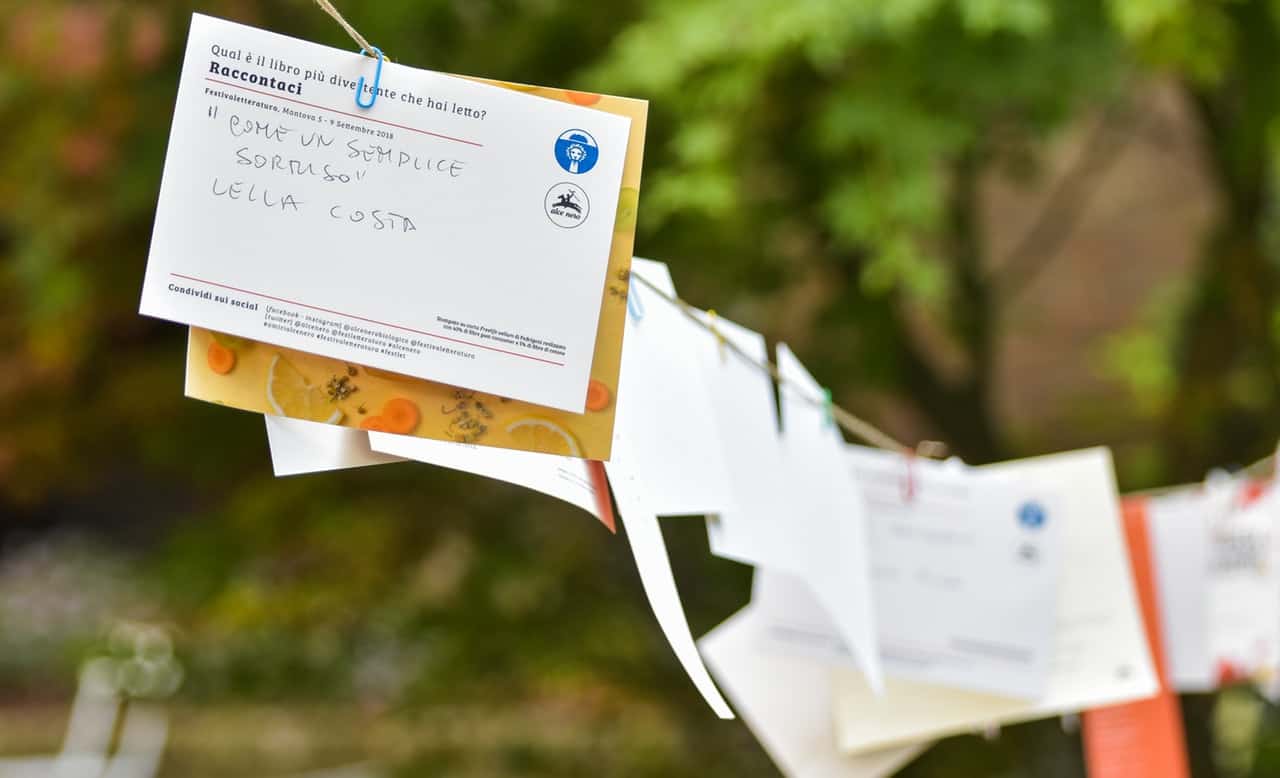
If you’re coughing up the same old newsletters over and over again without trying out any different types of emails, your subscribers are going to get bored.
Another reason behind ineffective emails is a lack of mix of “selling” and “value” based emails. If you don’t mix things up, chances of converting go down.
Mixing things up by experimenting with different types of emails helps increase open and click-through rates, thus leading to more sales.
Striking a balance between promotional emails and value emails is not easy.
Enter: Audience Segmentation
A new subscriber who signed up for a downloadable PDF wouldn’t react well to a hard sell right away.
A repeat customer wouldn’t require warming up or introductory emails about your brand.
Audience segmentation helps understand what people want and different types of emails cater to their differing needs.
Use segmentation when:
- Dealing with multiple products serving different audiences
- Or multiple products serving different needs but of the same audience
- Or the same product that serves multiple audiences
Different types of emails help include variety and serve different segments of the audience.
Marketing requires effort, be it writing copy, designing, optimizing, etc. If your conversion rates are poor, you are getting a poor ROI on your email marketing.
Segment and target your subscriber lists with EngageBay’s powerful Email Software
<<EngageBay contact segmentation enhanced targeting at your fingertips
<<The 10 Best Opt-in Email Strategies (with Examples)
19 types of emails that will help boost your email marketing ROI:
- 1. The Offer Email
- 2. The Free Gift Email
- 3. The Newsletter Email
- 4. The Lead Nurturing Email(s)
- 5. The Welcome Email
- 6. The Value Centric Email
- 7. The Survey + Reward Email
- 8. The Standalone Email
- 9. The Milestone Emails
- 10. Mobile Optimized Emails
- 11. Transactional Emails
- 12. Launch Emails
- 13. Restock Emails
- 14. Customer Story Emails
- 15. Re-Engagement Emails
- 16. Brand Story Emails
- 17. Meet the Team Emails
- 18. The “We Have An App Too” Email
- 19. Reactivation Emails
1. The Offer Email
This type of email consists of coupons, discounts, or other deals that you offer subscribers on your VIP list.
Offer emails usually have high open rates and can help improve your marketing ROI.
Irrespective of whether you have sales or discounts, it’s vital you chalk up special offers for subscribers. This way you can engage with them and hopefully make sales too.
<< How To Write a Promotional Email That Converts
Also, while sending such emails, try to impart a sense of appreciation and exclusivity. Let your subscribers know that they get to avail the offers before anybody else. They get to do so because they have subscribed.
Headspace created this well-thought-out offer email. There’s a bold CTA, and the offer end date introduces scarcity and prompts action.
You can still compose offer emails even if you don’t sell anything physical. If you are a SaaS (software as a service) based firm, offering free webinars or mini-crash courses will suffice.
The bottom line is that you regularly “honor” your subscribers for sticking around with you. This makes them feel special while driving sales.
Moreover, you also get to move subscribers further into the sales funnel.
2. The Free Gift Email
A gift bundled in your email is the sweetest thing that can grace anybody’s inbox.
It imparts a feeling of specialness. Moreover, it also boosts click-through rates and engagement.
There are tons of gifts you could send your subscribers. For starters, include downloadable content: A bonus recipe, or a free webinar pass, or a huge pack of free stock images.
Font Fabric has done a fantastic job offering a pack of 3 free fonts while also displaying a paid offer for a more significant collection.
Here, via this type of email, subscribers can download specific fonts for free, albeit before a predetermined time.
3. The Newsletter Email
Yes, newsletters have been around for a while now. There’s a reason behind that. People love newsletters.
Clutch conducted interesting research revealing that newsletters are by far the most popular type of email, with 83% of companies making and sending them.
However, the catch is that if your newsletter doesn’t come off as quirky and exciting, the unsubscribe button will become a frequent destination for your visitors.
This newsletter from Austin Kleon is super simple and very modest with the promotional content. That’s the secret recipe of a successful email newsletter. You must look to educate and not sell.
Consistency is another characteristic of a successful newsletter. You have to send the emails at the same time every week.
Your newsletter could also contain information about upcoming webinars or events, or news about your brand. Overall, look to be relevant and add value at all times.
Always ensure that your newsletters are brimming with intriguing, fascinating, or helpful info. If you can’t add value or create engaging content for a particular week, skip sending the newsletter at all.
<< 7 Free Newsletter Templates and Examples You’ll Want to Borrow
<< How to Create an Email Newsletter People Will Want to Read?
4. The Lead Nurturing Email(s)
Lead nurturing emails consist of a string of interrelated emails sent over several days or weeks.
The underlying idea behind this type of email involves moving leads through your funnel while converting them into customers. All this happens through a well-defined series of engaging and helpful content.
Nurture emails convey the value of a brand or even educate recipients on subjects they showed or signaled interests in.
Hubspot revealed that lead nurturing emails generate a staggering 8% click-through rate in comparison the 3% rate of generic emails.
Such email sequences are fantastic time savers. After you set up the sequence once, and test it to make a few tweaks, the lead generation process becomes a walk in the park.
Epsilon concluded that triggered emails yield a 241.3% higher click rates and 67.9% higher open rate than standard emails.
If you trigger an email workflow based on a person’s behavior – for instance, downloading a PDF, the email will perform well.
<< 17 email marketing automation workflows for amazing results
Litmus manages to deliver a clear copy that adds generous value to its recipients.
Nurture emails, welcome campaigns, and drip campaigns are all quite similar. Interestingly, the welcome email might even play a pivotal role in your overall lead nurturing strategy.
Read also: 14 Key Email Marketing KPIs Every Marketer Should Master in 2023
5. The Welcome Email
The welcome email is what you send subscribers within 24 hours of registration or opt-in.
It’s a straightforward email that conveys your appreciation and gratitude for having gained a new subscriber.
You could also give the leads a gist of what they can expect from you in the future.
MacPaw nailed the welcome email by clearly informing readers about a monthly newsletter filled with information regarding special offers and updates.
Being frank from the beginning helps prevent any nasty inbox surprises down the road.
If you are into SaaS, your welcome email must contain onboarding information along with a CTA (Call to Action) to start using your website or app.
Asana designed an awesome vibrant purple CTA button that contrasts the overall layout and is quite simple without any flashy elements.
The bottom line is that you create a welcome email that helps new leads or customers familiarize with your brand.

Read also: Email Retargeting Blueprint For Your Business [+ Examples]
6. The Value Centric Email
You don’t have to plot a subtle conversion all the time in your emails.
In fact, to win your subscribers’ trust, start with just 100% value-centric emails.
A value-centric email is just value delivered to subscribers with no strings attached. You could attach a blog post, a simple tip or hack, or some motivation.
Noon Pacific is just 100% value here and 0% promotional. Every Monday, they send a list of their 10 best songs of the week.
These emails help strike a good rapport with your audience, which is critical when you pitch your products or services.
Trust is a vital element of any email marketing strategy, and the value-centric email will, for sure help boost your ROI.
You could also include opt-ins or further subscription boxes, asking readers if they would like to receive more updates on a specific topic. This helps segment your audience better.
FiveThirtyEight delivers terrific value in their daily digest emails. They compile all exciting news stories for a day in a very concise and fun to read manner.
7. The Survey + Reward Email
The key to an effective marketing campaign is dialogue, not a monologue.
You can’t blast your subscribers with updates without ever receiving feedback from them.
The survey email is a straightforward email (sent in the first couple weeks) asking readers for their opinions on certain things.
You can later harness this information to customize your efforts to meet the expectations of your subscribers better.
However, if you don’t have an incentive tied with this survey request, chances are online pedestrians are going to scroll right past you.
Frye did a fantastic job by offering a $50 coupon in exchange for a questionnaire.
8. The Standalone Email
Newsletters, in all their glory, have an obvious drawback.
Since they are brimming with links and blurbs, the reader’s attention gets diverted instantly, thus weakening your ultimate CTA.
Your readers might skim through your email and not engage.
So, if your primary objective is to make a particular something happen like signing up for a webinar or reading a new blog past, standalone emails are fantastic.
Banana Republic has got “simplicity” written all over this elegant email. This email does nothing but tells you that’s a great offer going on. Moreover, the CTA button is super contrasting and straightforward.
Such emails talk about just one topic and present the CTA quite frankly. Since your readers’ attention doesn’t waver, such emails tend to hit more.
The bottom line is that a standalone email helps generate more opens, clicks, and sales.
However, don’t just stick with standalone emails. Spice things up with different types of email to keep your readers on edge.
👉Uncover the secrets of successful email marketing with our in-depth guide to the best trigger email strategies! 🎯
Read also: Marketing Mastery: Email Sequence Examples That Convert
9. The Milestone Emails
You could send emails to celebrate milestones reached by your readers or even by you.
Here are a few milestones you could take advantage of:
-
Birthday Emails
Birthday emails are ultra effective boasting of a 481% higher transaction rate and generated 342% higher revenues than regular promotional emails.
Also, these emails have a staggering 179% higher unique click rates in comparison to other promotional emails.
Birchbox gifts it’s subscribers a $10 discount during their birthday month. This email is straightforward and elegant.
This might sound like a no brainer, but still, ensure that you have a birthday field in your landing page sign-up forms or any other lead generation forms.
-
Subscribers’ First Purchase / Sign Up Anniversary
Providing additional coupons or freebies during an anniversary is another exciting way to drive engagement.
Lumosity imparts a unique personal touch by prompting you to talk a walk down memory lane. By asking you to ponder on what you’ve learned, you are thinking about their product.
Consequently, if you feel that you want to learn more, the red CTA button is up and ready for you.
-
Your Company’s Anniversary
This is just another added “opportunity” for you to slash prices and notify your subscribers.
Menulog wrote an impressive email announcing their anniversary while prompting you to order something.
10. Mobile Optimized Emails
Clutch claims that although 90% of marketers realize the importance of mobile optimization, only 59% of companies do it.
In 2016, more than 50% of total email opens happened from mobile devices, and that percentage is only headed upwards.
Additionally, if users can’t effortlessly read or view emails on their devices, 71% of them delete it while 16% smash the unsubscribe button.
It doesn’t matter how stellar your copy is. Unless you go mobile, it’s going to be a tough journey increasing the ROI from your free email marketing campaigns.
>>EngageBay’s drip campaign to save precious time
Here’s an example of a mobile-optimized email:
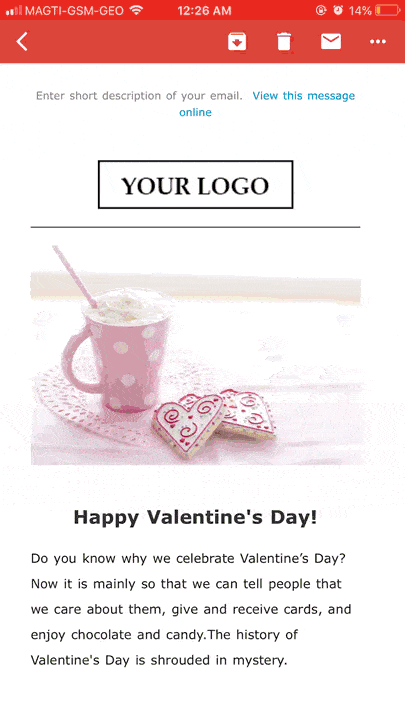
Here are 5 quick hacks to optimize your emails for mobile devices:
- Improve your image selection
- “Clean and simple” are golden terms when it comes to mobile optimization. Avoid over-design with tons of images, because slow internet connections hate large photos.
- Switch to a responsive template
- Responsive templates automatically adjust the content of your email to fit the screens of various mobile devices.
- Invest well in the word-real estate
- There’s not a lot of area up for grabs. Look to create concise and crisp copy that creates instant impact.
- Add spaces
- Break up the text by avoiding long paragraphs.
- Engage in buttons
- Buttons are friendlier than links, especially on mobile devices. It’s much more convenient to click on a button than get redirected to a whole new page.
Read also: 15 Email Sequence Software To Ignite Your Campaigns
11. Transactional Emails
Well, if you have an e-commerce element in your business, you’re probably already sending transactional emails containing confirmations and receipts.
These emails have 8x times the clicks and opens of any other email type. However, you’re probably ignorant to the massive potential here.
Since you’ve already hooked the reader, this is a great time to share some personalized suggestions or product recommendations.
You could tailor make the suggestions such that it aligns with a user’s buying habits.
Some instances of transactional business email format include:
-
Account Creation Notifications
-
Password Reset Prompts
Airbnb attempts to grow its social media following along with this password reset prompt.
-
Cart Abandonment
If your site is sophisticated enough, you can identify times when users add items to their carts but fail to complete the purchase.
The reasons behind this are plenty. For instance, the user could have gotten distracted by a message on another tab and accidentally closed the check-in tab.
Consider sending a reminder email with the same check-in page prefilled with their ordered cart.
This is a great way to recover lost sales. Moreover, since the items are going to be actual items they chose, the chances are that they would go ahead with the purchase.
Casper got super quirky with this headline:
12. Launch Emails
If you’re launching something new, why not let your valuable subscribers in on the news?
Your subscribers (who intentionally opted-in) already have a certain degree of interest in what you provide.
Therefore, spilling the beans about your new secret product or blog will increase your open rates.
Subtly, you could also include a CTA like what Rifle Paper Co. did here.
13. Restock Emails
A restock or order again email works like a charm when you master the elements of time and accuracy.
If the right people receive the restock emails at the right time, chances of a sale drastically improve.
31Dover left no stone unturned with this witty and bold restock email.

Nudging your subscribers to buy the same products or try out similar ones is a great way to improve open and click rates, and drive sales.
If you handle a subscription service or deal with consumable goods, consider sending restock emails at regular intervals.
14. Customer Story Emails
You can create customer stories by interviewing or analyzing your customers.
You could outline customers’ success with your services or products, their personal stories, and tips for fellow customers.
As these stories are from real customers, potential customers get curious and tend to read to get a first hand and unbiased perspective of your brand.
Allen Edmonds included this inspiring story of one of their customers in their emails.
Moreover, such stories also help build a sense of community. As a result, subscribers can identify with fellow buyers while sharing their experiences.
Udemy, a leader in the online learning sphere, witnessed a 35% rise in engagement upon sharing customer stories.
Look to apply this concept, and your email campaigns will witness more clicks and opens.
15. Re-Engagement Emails
There’s bound to be a few subscribers who aren’t very much interested in what you offer.
As a result, these subscribers are naturally less engaging.
It’s vital that you target these users and re-engage with them.
Paul Mitchell got emotional with this email and overall crafted a well-rounded re-engagement email.
Return Path’s study concluded that around 12% of the re-engagement email recipients read them. Now, 12% might seem like a small figure.
However, you are gaining 12% of lost potential. It’s a bonus, however small the number is.
The study also suggested that two types of re-engagement emails are quite useful:
The first type included “miss you” and the second involved “come back” in the subject lines.
16. Brand Story Emails
You or your team create brand stories.
Brand story emails are effective when you have a compelling personal story behind the creation of your brand.
A study featured in the Journal of Brand Management revealed that customers exposed to brands’ stories would go on to describe the brands positively. Moreover, they were also willing to pay extra.
Whipping Post wrote out a great brand story in their welcome mail. The founder recalls his very first product and the motivation behind its creation.
You don’t need to have a rags-to-riches tale for a brand story.
Merely explaining how your products get manufactured, or factors influencing your business decisions will suffice.
The bottom line is that you aim to provide something engaging and thought-provoking to your subscribers.
17. Meet the Team Emails
This type of email takes ‘personal touch’ to a whole new level.
Introducing your team and key people behind your brand is a great way to start your communication with newly generated leads.
This sort of email also impacts better as people like to know your background experience and qualifications.
Andrew and Pete introduce themselves while also talking about their passion.
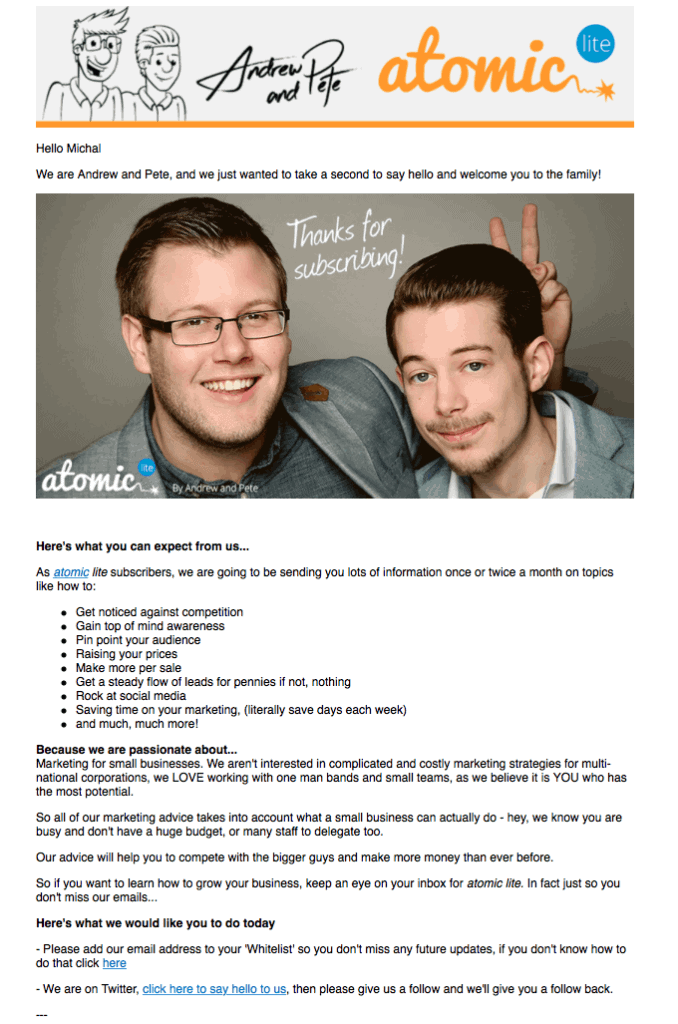
If you run a SaaS company, the “meet your team” email is a scintillating onboarding idea.
The bottom line is that this type of email imparts a human feel and adds credibility to your team.
Additionally, your subscribers will click through thinking, “It’s not a promotional email, but an informational email.”
As a matter of fact, you are indeed conveying information about your brand.
18. The “We Have An App Too” Email
A vital component of marketing is to have customers come back for more.
What better way to do that than invite them to install your application?
Let your subscribers know that they can receive exclusive information about your brand via your apps.
Nike wrote this minimalistic email with a clear CTA button informing readers about their app.
85% of mobile users find apps more relaxing than mobile websites! Use this to your advantage.
The app – existence – notification email is a great onboarding starter and gets excellent open rates.
Moreover, if subscribers do install the app, the notification updates they receive could drive sales.
19. Reactivation Emails
Well, people are forgetful.
Busy schedules get in the way of important things like jogging or eating healthy.
Similarly, your subscribers could simply have forgotten about your brand.
Udemy deftly infused an element of urgency and scarcity here.
Send an email every time you notice your subscribers settle into a prolonged period of inactivity.
Remind them why they subscribed to you in the first place. Additionally, reward them with something unique to woo them all over again.
Conclusion
Different types of emails help you spice things up and keep stuff interesting for your subscribers.
Additionally, segmentation by using different types of emails helps target different types of leads relevantly.
The 19 different types of emails are all unique by themselves and are proven strategies to improve engagement rates.
A/B test all the different types of emails and try to craft a perfect recipe that helps you gain maximum ROI from your email marketing efforts.
<< Improve Your Email Campaign’s Open Rates Through A/B Testing
<<EngageBay’s email sequences turn your warm leads into paying customers by following up regularly
Emailing thousands of users is a difficult task. Why not automate it and sip some lemonade while listening to “Shake it Off” by Taylor?
EngageBay has a ton of features that anybody can learn in a matter of clicks. Hop on to our platform to find out how we can assist you in improving your online presence and driving sales.
